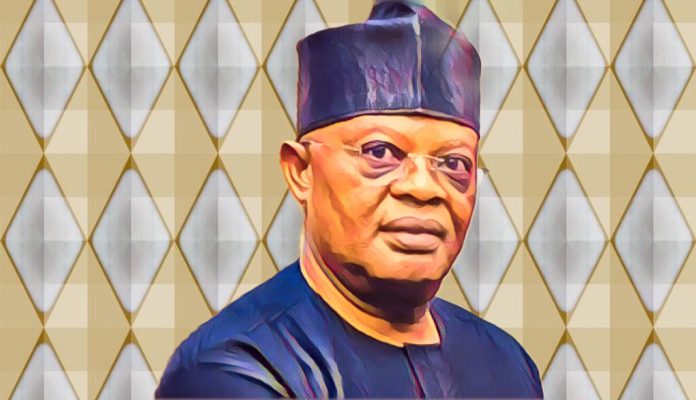KEY POINTS
-
Ibok-Ete Ibas, sole administrator of Rivers State, failed to appear for a second time before a House committee probing emergency rule.
-
The emergency administration was instituted by President Tinubu in March, suspending elected state officials amid political crisis.
-
Ibas’s no-show heightens concerns over accountability and democratic governance in a state already gripped by unrest and protests.
The political turmoil in Rivers State took a new turn on Thursday as Ibok-Ete Ibas, the sole administrator appointed by President Bola Tinubu, failed to appear before the House of Representatives ad hoc committee investigating emergency rule in the state.
The Cable reports that the absence marks the second time Ibas has missed a scheduled appearance, further fueling concerns over transparency and accountability in the administration of the oil-rich South-South region.
On April 15, Speaker of the House Tajudeen Abbas inaugurated a 21-member committee tasked with overseeing governance under emergency conditions in Rivers. The committee, chaired by House Leader Julius Ihonvbere, was formed in response to a constitutional crisis that has drawn both national and international attention.
Following the committee’s formation, Ibas was summoned to appear on April 17 to brief lawmakers on the political and administrative state of Rivers. However, he requested a rescheduling, which was granted, moving the session to April 24. Yet on Thursday, Ibas once again failed to appear, despite having attended the National Economic Council (NEC) meeting in Abuja earlier the same day.
When pressed for comment, Ihonvbere refused to speak to journalists, simply responding, “No comment.”
Lawmakers left waiting as Ibas skips second summons
The controversy stems from President Tinubu’s declaration of a six-month emergency rule in Rivers on March 18, prompted by an escalating political standoff. The president suspended Governor Siminalayi Fubara, his deputy Ngozi Odu, and all members of the Rivers State House of Assembly.
Ibas, a retired naval officer and former Chief of Naval Staff, was then appointed as the sole administrator to restore order and govern the state during the suspension.
Since taking office, Ibas has moved swiftly to consolidate control, suspending all political appointees appointed by Fubara. These actions have drawn fierce criticism from stakeholders, civil society groups, and political observers who argue that the moves undermine democratic principles and governance norms.
The Pan Niger Delta Forum (PANDEF), a key regional advocacy group, has been vocal in its disapproval. “The appointment of a sole administrator in a democratic dispensation is both unconstitutional and unacceptable,” a PANDEF spokesperson said in a recent statement.
Protests have erupted in parts of Rivers State demanding the reinstatement of Governor Fubara and a return to democratic governance. The political impasse has prompted backchannel efforts, with reports confirming that Fubara recently met with President Tinubu in London to explore potential resolutions to the crisis.
Amid this turmoil, Ibas’s continued absence from the parliamentary oversight process raises serious questions. Legal analysts warn that his refusal to engage with elected lawmakers could further erode public trust and complicate efforts to restore stability in the region.
“At a time when the nation’s democratic institutions are being tested, noncompliance with legislative oversight sends a troubling message,” said a constitutional lawyer familiar with the case.
Meanwhile, the committee’s next steps remain uncertain. While members have refrained from issuing direct rebukes, their silence suggests growing frustration. Political analysts say that unless Ibas addresses the legislature soon, calls for a review of the emergency rule policy may intensify.
As Rivers State stands at a crossroads, the outcome of this standoff could set a significant precedent for how emergency powers are interpreted and enforced in Nigeria’s federal system.



